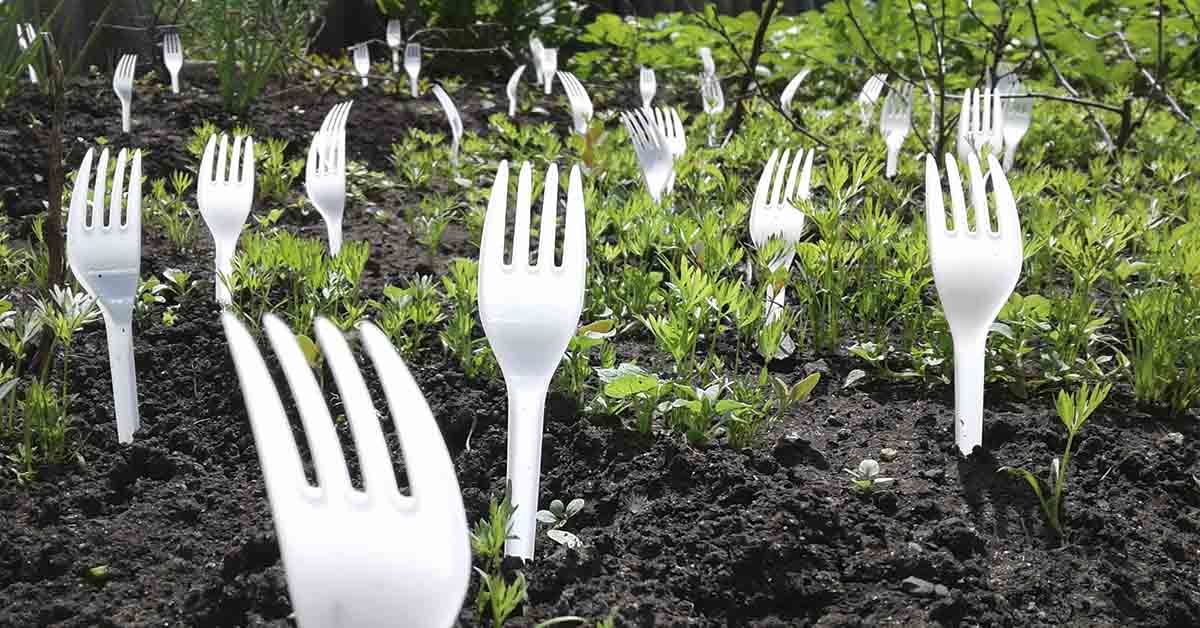You don’t need a by-the-numbers guide to have a thriving garden. In fact, many successful farmers and home gardeners use a little creativity to solve common problems like pest prevention, ineffective seed starters, and landscaping designs. Best of all, many of these gardening hacks don’t require any special skills or equipment. All they need is a little time, energy, and items you were probably going to trash anyway. Like many hobbies, gardening takes some problem-solving, trial and error, and creativity, so here are some unique solutions to expand your skill set.
The Plastic Fork Gardening Hack
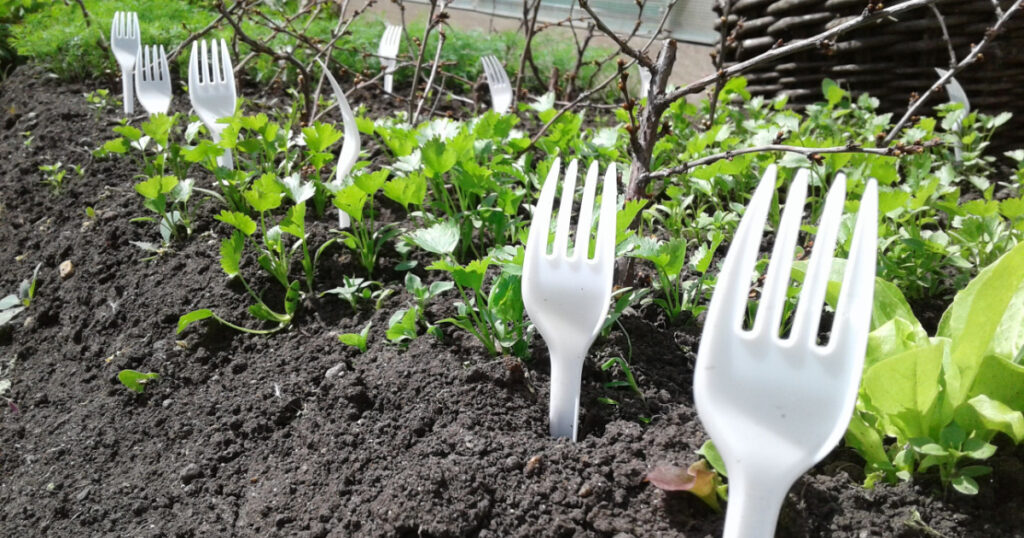
It’s wonderful to see wildlife interacting with your garden. But not if the animals are destroying your hard work. However, it may be difficult to discourage intruders without accidentally hurting them. Fortunately, Lorraine Thompson, a garden expert and the founder of Best Florist Reviews, has a simple and creative solution. “If you have problems with animals like squirrels and raccoons digging up your plants, try sticking plastic forks into the soil around the base of your plants. The forks will make it difficult for the animals to dig, without harming them.” Strung up CDs may also help to repel birds and other wildlife. [1]
Read: Say Goodbye to That Pesky Toilet Bowl Ring With This Hack
Plant-in-a-Pot
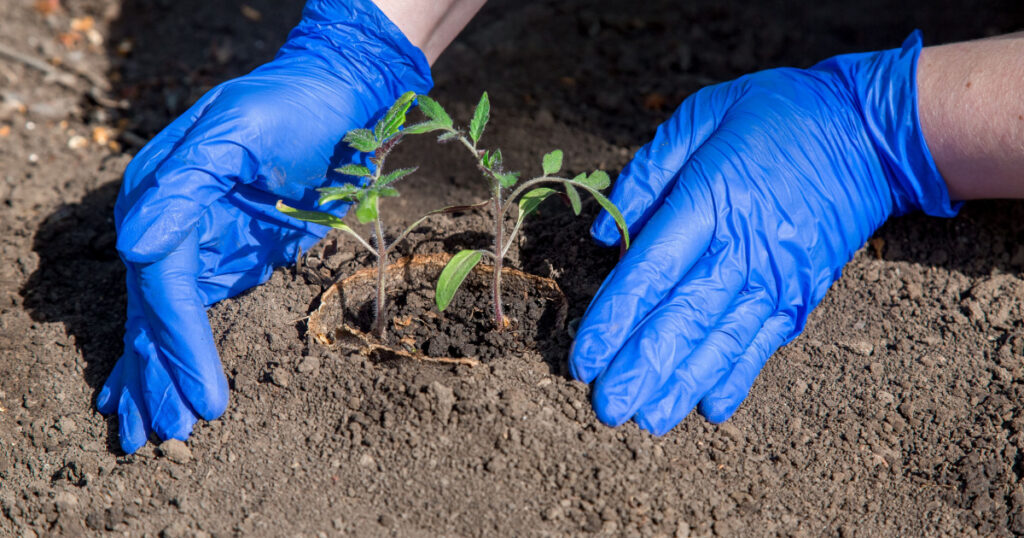
Would you like to redesign your garden by swapping around plant varieties and colors? Of course, replanting fully-grown plants on a whim can hurt their growth. Unless you are not replanting the plants themselves, only the pots they are growing in. The trick is using two pots. One holds the plant and the second is buried at ground level. When you want to swap landscaping around, lift out the first pot and place another potted plant into the second. This method also makes it easy to bring plants inside when cold weather comes around. [2]
Caffeinate the Soil
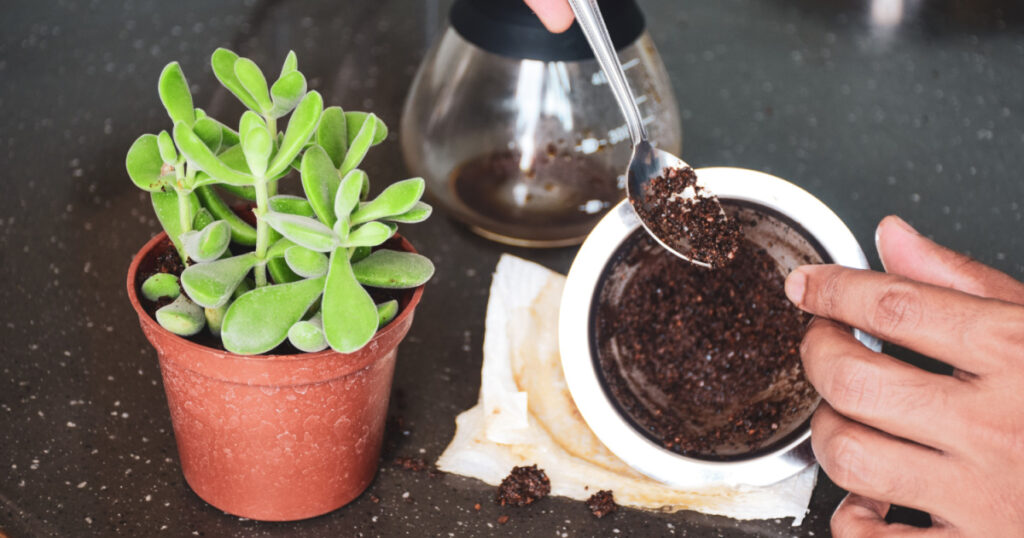
Waste not, want not. So keep your used coffee grounds for your garden. They contain nitrogen, which can encourage the growth of microorganisms in the soil. So add them to a compost bin and combine with equal parts of dry leaves or shredded paper, and add the mixture to wet soil along with a nitrogen fertilizer. Some people also found that coffee grounds attract earthworms, which enrich the earth, and repel the unwanted slugs and snails.
Read: A Simple Guide to Growing Pineapple in Water at Home
Citrus Rind Seed Starters
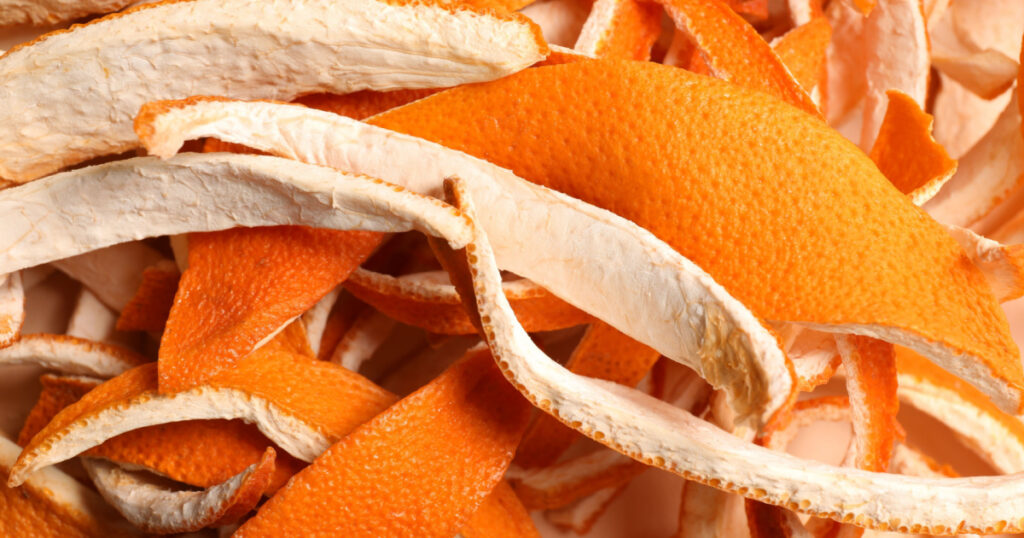
While you’re recycling food items, hold on to the rinds of citrus fruits like grapefruits and oranges. But keep half of the rind intact so it resembles a small bowl. Perfect for new seedlings. First, hack a small hole in the bottom of the rind for drainage and add seed-starting gardening soil mix plus new seeds. So once the plant sprouts, there’s no need to uproot anything. Just bury the plant in the garden while it’s still inside the rind. But keep in mind citrus rinds can increase the soil’s acidity, so only use seeds of plants that like acidity, like peppers and radishes.
Stretchy Plant Ties
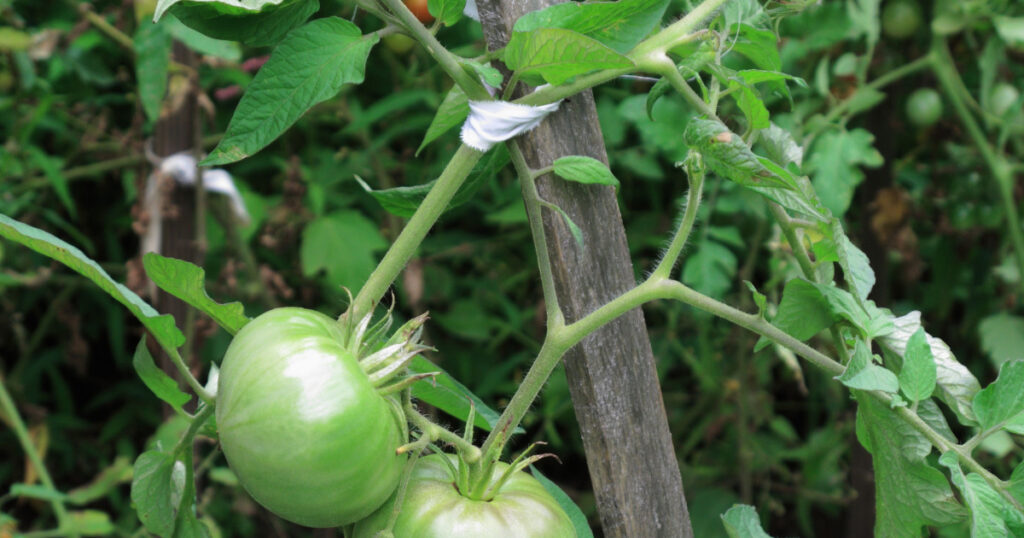
Many plants need some support, especially those with weak stems, heavy leaves and flowers, etc. You commonly see vegetable gardens with tomatoes and peas using stakes and trellises to keep the plant growing upward. But you may have an issue with tying the stems or vines to the support. Many people use zip ties, but they are not ideal since they can restrict the plant and cut into the stems. Therefore, it’s better to use flexible and soft ties that allow for growth and movement. Best of all, you don’t need to break the bank to do this. Use old nylon stockings or cut-up pieces of old T-shirts. Ensure the fabric is wide enough to support the weight of the vine. Then tie it to the support, loosely wrapping it a couple of times to stop the stem from rubbing against the stake or trellis. [3]
Hack Gardening Seeds
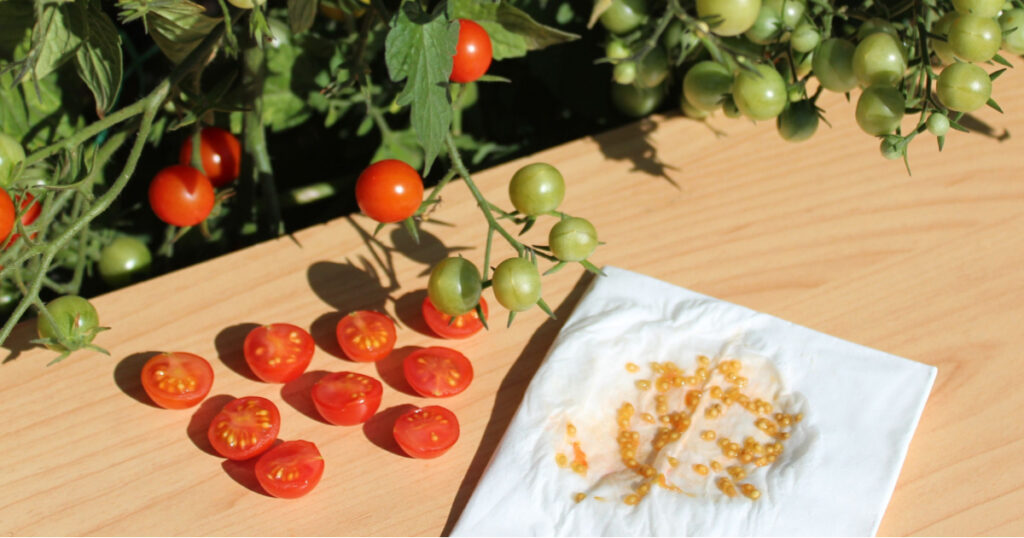
Growing vegetables at home can be efficient, and so can saving seeds from year to year. “Every year, I take a few seeds of the first nice tomatoes we get, put them on a piece of paper towel, and dry them thoroughly. Then I store them in a little homemade sleeve in a dry and cool place,” explains Anja Eckert, a homesteader and creator of Our Gables Home. “With this hack you are also ensuring that you have seeds of those tomatoes that grow well in your particular microclimate and situation.” You can also save seeds from peas, beans, peppers, and cucumbers. Next year, soak your seeds in warm water for a day to help them begin development. “It is a method, for some species, of breaking seed dormancy,” says Peter Burks, a horticultural expert at Potter & Rest. “All seeds will need to absorb water before germination takes place, so soaking them will speed the germination process up in many plants.”
Read: 10 Tips for Growing Avocado in a Pot and for it to bear fruit
Recycle Eggshells
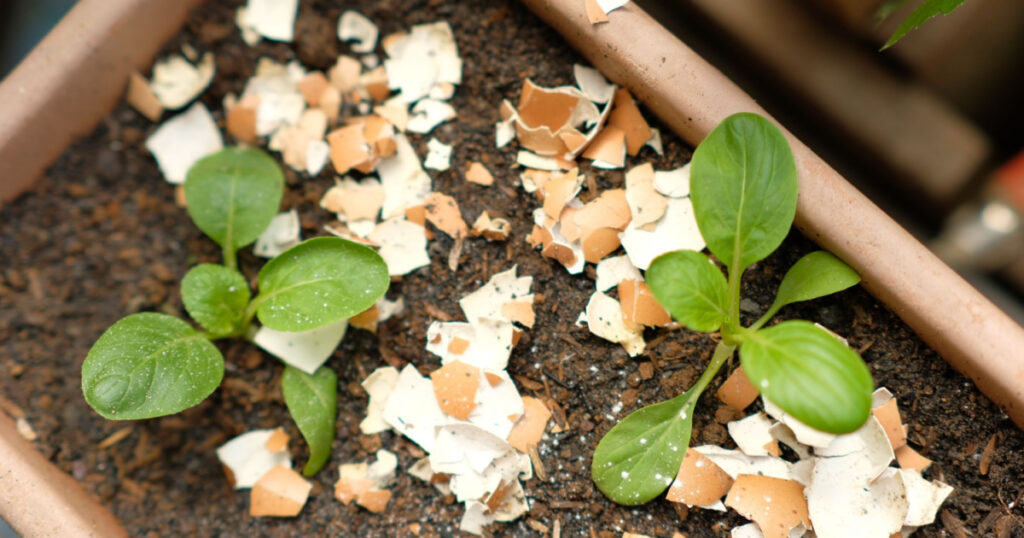
Don’t throw away eggshells; keep them for your garden. In fact, they can serve two purposes. Crushed eggshells can keep slugs and snails away from delicate plants. These creatures are sensitive to rough terrain so sprinkle shells around plants to dissuade them from getting too close. At the same time, eggshells are filled with calcium, a mineral crucial for plant health and development. So blend them into a powder and mix it with potting compost. [4]
DIY Fungicide Gardening Hack
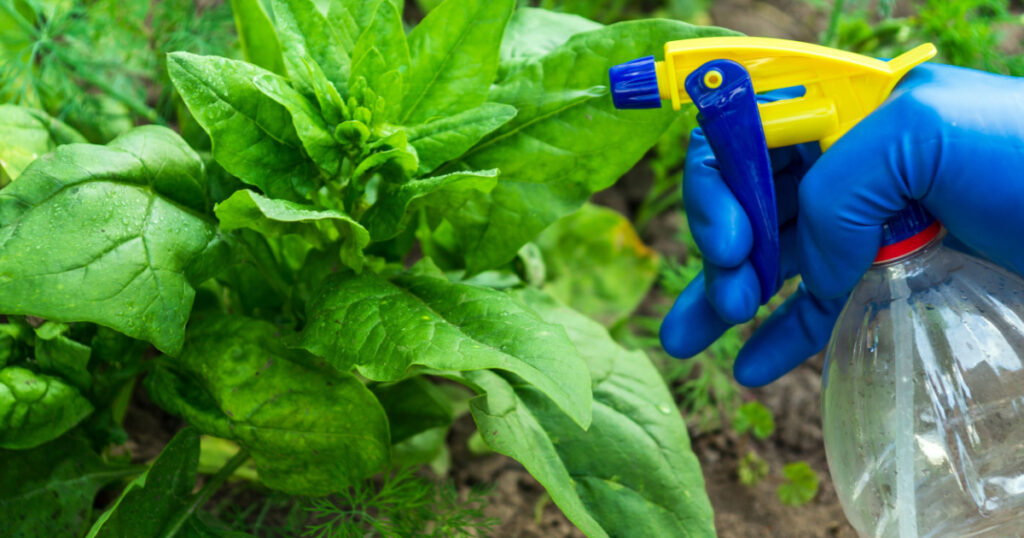
Prevent fungal diseases in your garden with a homemade fungicide. Simply mix a teaspoon of baking soda, a few drops of liquid dish soap, and four cups of water. Spray this solution onto plants every week or two or after rainstorms. Look for signs of diseases such as rust, black spots, and powdery mildew on your greenery. [5]
Reuse, Recycle, Regrow
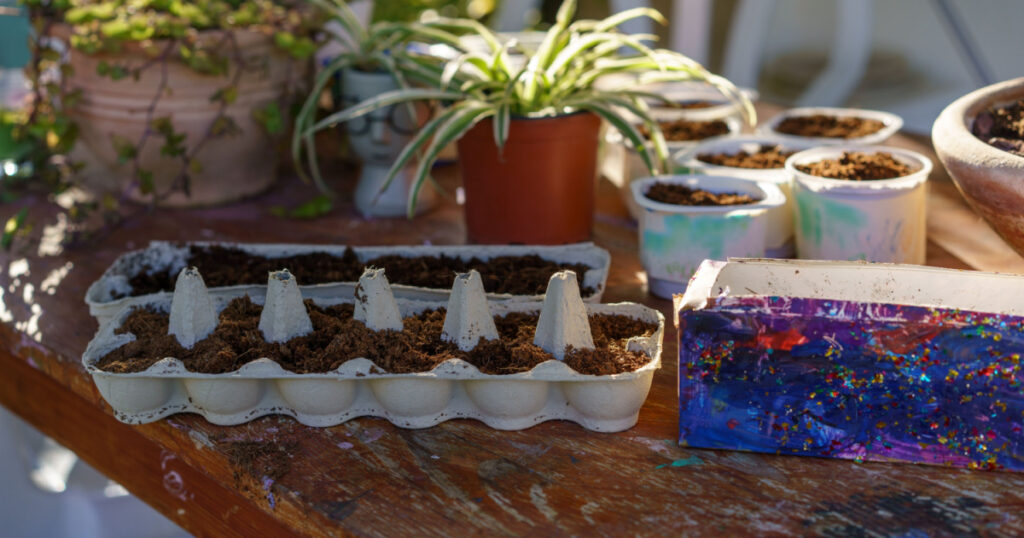
You don’t need to break the bank to have a beautiful garden. There are many more tips on how to turn food scraps and other items destined for the trash into gardening tools. So don’t just save old nylon stockings, eggshells, citrus rinds, and plastic forks. Look for more items you can recycle, saving money and the environment, and don’t be afraid to get creative. For example, you can turn old pots and pans or even tubs into planters, grow seedlings in egg cartons and toilet rolls, make compost from kitchen scraps, turn soda bottles into mini-greenhouses, and use condiment squirt bottles to mist plants.
Keep Reading: The Best Ways to Remove Pesticides from Your Fruit and Vegetables
Sources
- “8 vegetable garden hacks that can save you time, money, and give you better crops.” Home and Gardens. Drew Swainston. April 4, 2023
- “24 Genius Gardening Hacks You’ll Be Glad You Know.” Family Handyman. August 23, 2023
- “20 Gardening Hacks to Help You Get Growing, Approved by Experts.” The Spruce. Nadia Hassani. June 13, 2023
- “12 amazing gardening hacks everyone with a garden needs to know.” Good Housekeeping. Charlotte Brouwer. June 15, 2016
- “13 Garden Hacks From the Experts.” Tree Hugger. Tom Oder. November 8, 2021
